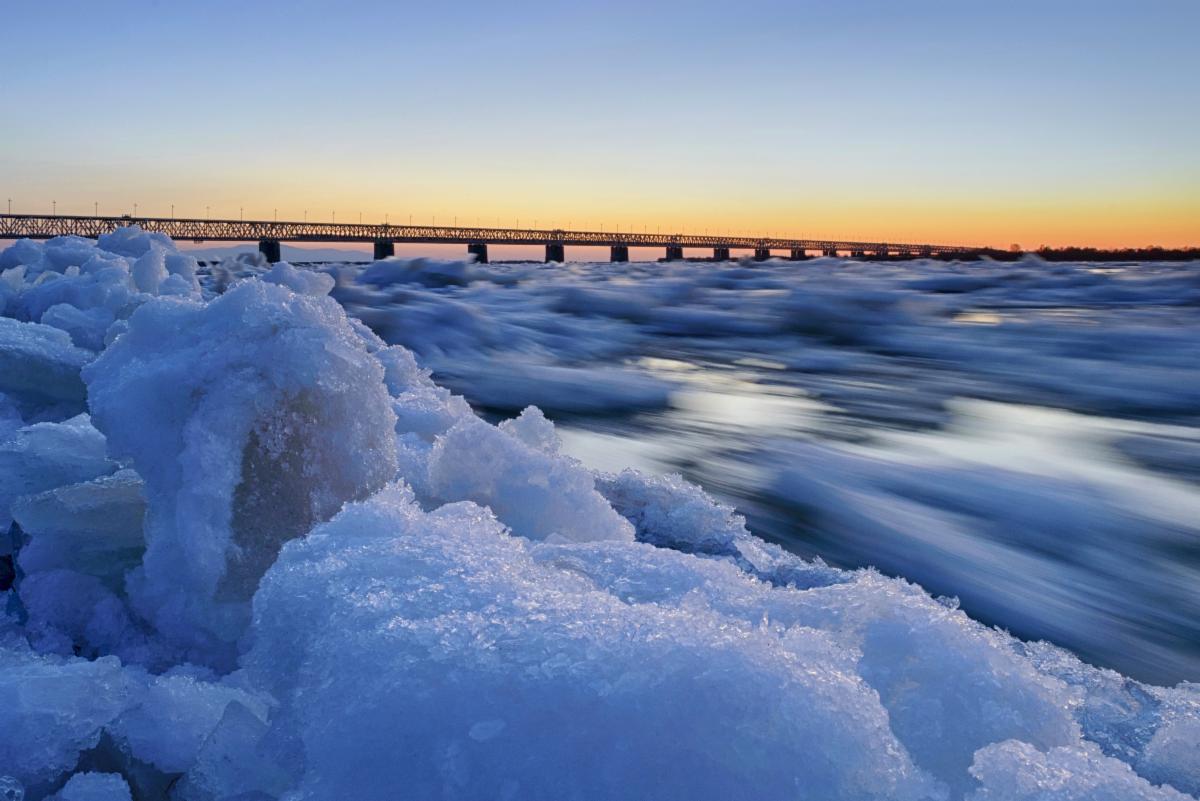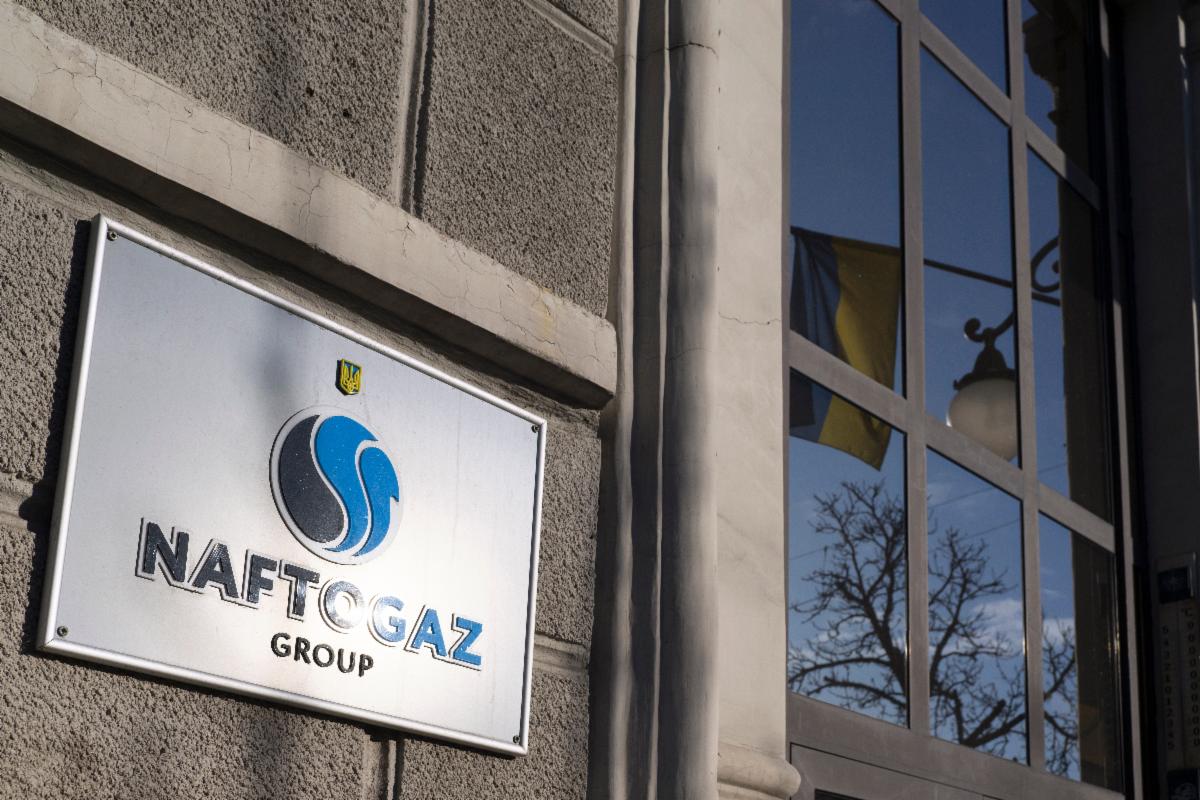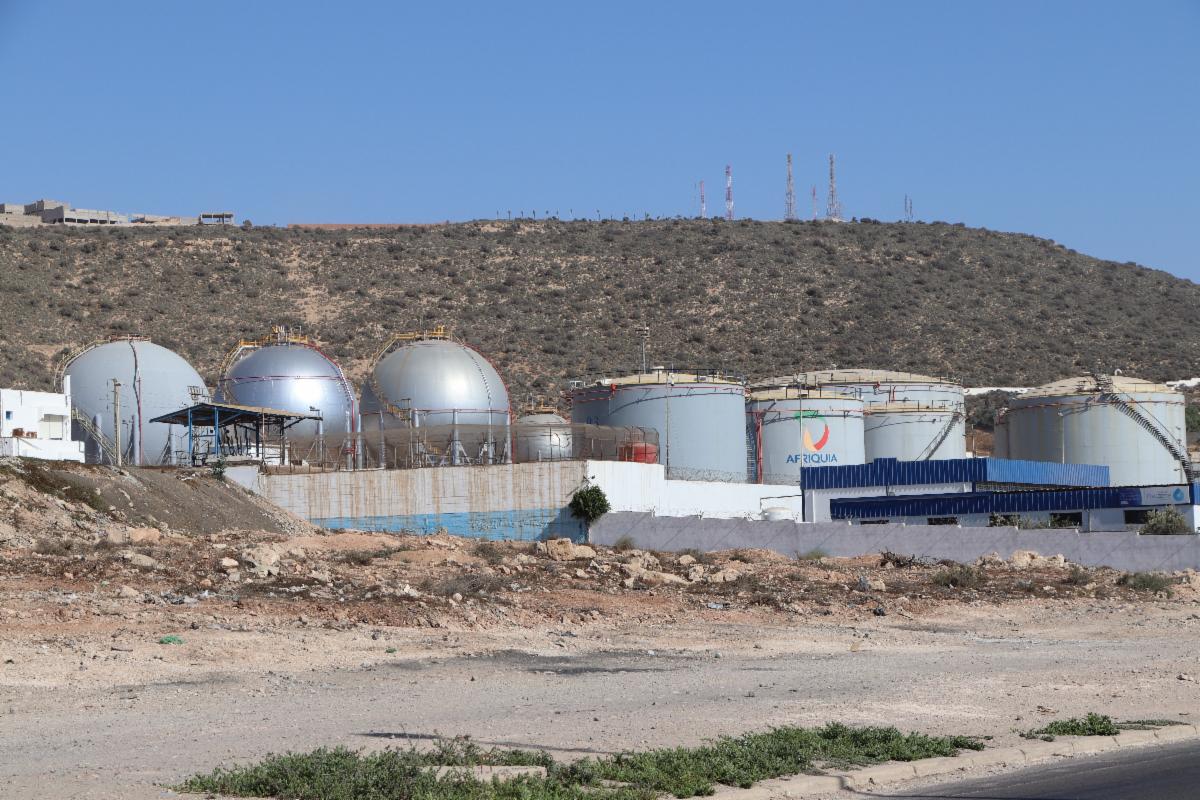Russian Energy Update – July 26, 2023
Russian Energy Update – July 26, 2023
Want to receive future energy updates? Subscribe here.

Russian Arctic railway delayed due to budget concerns
Russia appears to have postponed construction of the Northern Latitudinal Railway, a proposed 707km railroad project connecting Russia’s northern Yamal Peninsula with nearby Arctic regions, until at least 2027 and possibly to 2031. As Russian business newspaper Kommersant originally reported, Moscow is facing financial difficulties sourcing approximately $1.6 billion of the $7.2 billion needed for the project, which would reduce rail transit distances and times from Russian Arctic regions to Asia and reduce congestion on some other routes. The rail line is a component in Russia’s broader plans to develop its northern regions and could also support the Northern Sea Route, an emerging shipping route from Europe (and northern Russian ports) to Asia.
Thus far, the Russian government, gas monopoly Gazprom, and other public and private entities have committed financing. According to Kommersant, a bridge over the Ob River has emerged as a key financial obstacle. The Ob is the world’s seventh longest river and one of Siberia’s major waterways. A possible delay to 2027 would add an additional 80 billion rubles (over $880 million) to the project’s budget.
Why it matters: Russia’s Arctic region has important fossil fuel and mining resources Moscow could use to sustain and increase exports and drive future economic growth. Yet developing the region is costly and persistent delays have repeatedly set back Russia’s ambitious plans. With Russia’s military budget spiking 282% from 2022 to 2023, and the IEA reporting a 50% decline in Russian energy export revenue year over year, large long-term Arctic projects like the Northern Latitudinal Railway appear to be facing funding shortfalls.
The collapse of U.S. and European trade and investment in Russia following its 2022 invasion of Ukraine, and Western economic sanctions, have likely contributed to financial challenges for Arctic megaprojects like the Northern Latitudinal Railway. Earlier Western sanctions, following Russia’s 2014 seizure of Crimea and efforts to create and support two independent republics in eastern Ukraine, likely contributed to delays in developing Arctic oil and gas projects that otherwise might have helped support additional infrastructure spending in the region. Look for a forthcoming EIRP report on Russia’s Arctic development soon!

Russia-Ukraine gas transit deal could expire in late 2024
On July 12, Ukraine’s Energy Minister said the country was unlikely to renew a gas transit deal with Gazprom that allowed the firm to export natural gas to the EU via pipelines in Ukraine. The Minister believed that by time the deal expires at the end of 2024, Europe will no longer depend upon Russian gas imports. Gazprom’s Chief Alexei Miler has also tempered expectations for a renewed deal. Miller also threatened that Gazprom would end exports through Ukraine if the country continued legal moves to seize Russian government assets in compensation for Russia’s appropriation of Ukrainian energy infrastructure when Russia annexed Crimea in 2014.
Why it matters: Russia has historically relied heavily on pipelines through Ukraine for its natural gas exports to Europe, but volumes have declined sharply following the European Union’s decision to wind down pipeline gas imports from Russia and Russia’s attempts to use supply reductions for political leverage. Russia exported over 140 billion cubic meters (bcm) of pipeline natural gas to the EU in 2021, but by early 2023, was exporting at a rate of only 26 bcm. Russia is no longer providing gas through the Nordstream 1 and 2 pipelines (under the Baltic Sea) or the Yamal pipeline (through Poland) and is relying wholly on Turkstream (under the Black Sea) and routes through Ukraine.
The dueling Ukrainian and Russian statements about the gas deal come against the backdrop of an ongoing dispute between Gazprom and Ukraine’s oil and gas company Naftogaz over transit fees. Prior disagreements over the fees led Gazprom to halt gas shipments through Ukraine in 2006 and 2009. In April, Kommersant reported that Ukraine would raise transit fees for Rosneft for oil traveling via the Druzhba pipeline, with higher rates taking effect in August.
Like Ukraine’s previous decision to raise oil transit fees for the Druzhba pipeline, Kyiv probably aims to limit Russian energy export revenue as much as possible (through higher fees, if Russia accepts them) while pressuring EU members to diminish their energy relationships with Russia (by increasing costs and/or raising further questions about future reliability of Russian supplies due to periodic transit fee disagreements). Conversely, Moscow will likely continue to wield its exports, and the fees, as a political instrument in relations with the EU members that still rely on Russian natural gas.

North and West African states solidifying as destinations for Russian fuel exports
Over the first seventeen days of July, Russia’s sea-borne diesel and gasoil exports rose by 11% compared to the same period in June, with volumes reaching over 1.9 million tons (approximately 14 million barrels/day). In parallel, Reuters noted a significant increase in Russia’s gasoline exports, from 2.7 million tons (22.8 million barrels) in the first half of 2022 to 3.5 million tons (29.6 million barrels) in the first half of 2023, with Russia supplanting previous European exporters to Africa. S&P similarly reported that Russian refined oil products to Africa surged from 33,000 b/d prior to Russia’s invasion of Ukraine to 420,000 b/d by March 2023, before declining to approximately 250,000 b/d in June. North and West African states are the largest recipients, with six states receiving volumes above the 33,000 b/d Russia exported to the entirety of Africa before Russia’s invasion.
Why it matters: As in global crude oil markets, Russia is finding its way in global energy markets increasingly structured by sanctions. While U.S. and Western sanctions and the G7-EU oil price cap have likely reduced Russia’s energy export earnings, the policies are ultimately constrained by the fact that global oil and oil product markets are a closed system: pressure in one area will distort other areas to accommodate supply and demand. Unwinding deep pre-2022 connections between the EU and Russia have imposed costs on each while offering some benefits to other suppliers (including the U.S. and OPEC members) and to non-Western customers (excluding U.S. allies like Japan and South Korea). Energy systems will eventually reach a new equilibrium.

U.S. imposes new sanctions to curtail Russia’s future energy development
On July 20, the U.S. State Department announced new sanctions against Russian entities, particularly those aiding the development of Russia’s future energy production. Among the sanctioned firms include Russian drilling and construction firm Nipigaz, two Russian oilfield service companies, and two subsidiaries of Russia’s state nuclear energy firm Rosatom that provide technology for maritime propulsion systems. To curtail Russia’s overseas trade, Washington also imposed sanctions on Sakhalin Shipping Company (SASCO) as well as multiple deputy ministers across the country’s energy, finance, and industry and trade ministries.
Why it matters: The sanctions highlight the U.S.’s strategy of avoiding new near-term costs or disruptions to allies and global energy markets while seeking to place additional constraints on Russia’s long-term energy potential. Periodically identifying new targets for sanctions also contributes to ongoing uncertainty about doing business with Russian entities that can undermine Russia’s trade and investment relationships.
For Moscow, the sanctions present an additional obstacle to shifting energy exports toward East Asia, particularly China. SASCO’s fleet of fourteen general cargo ships have helped Russia become China’s second largest source of coal and in exporting $4.7 billion of coal in 2021. SASCO also plays a key role transporting equipment for Russia’s energy projects in the Taimyr Peninsula, including the Vostok Oil Project; American officials sanctioned a Rosatom subsidiary participating in that project in May. Chinese firms have invested in similar Arctic projects like Yamal LNG and Arctic LNG 2, but Russia has thus far failed to secure Chinese investment for the Vostok Oil Project. Russia hopes these projects will also incentivize investment and increased shipping traffic along its Northern Sea Route.
